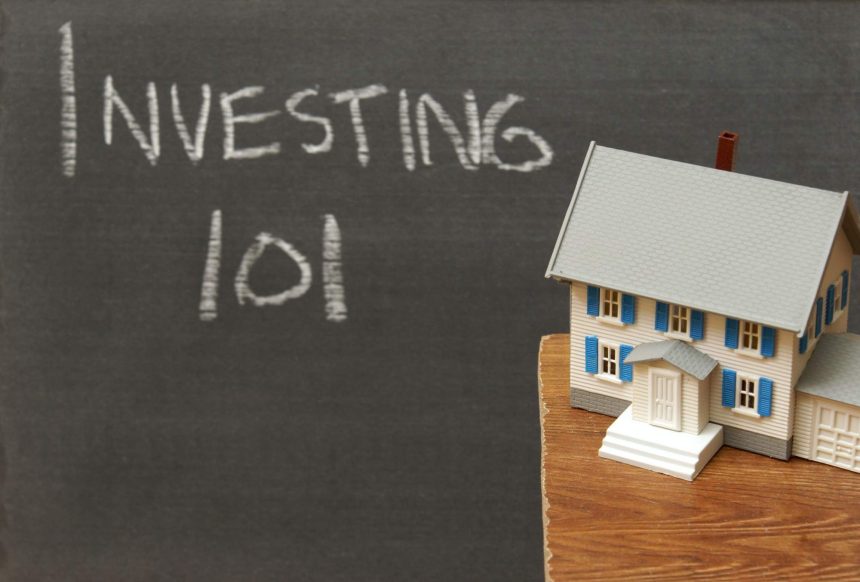If there were ever a time-tested, lucrative investment, it’s real estate. While crypto and stocks get all of the attention, millionaires still say that real estate is the best investment of today.
Well, that’s unsurprising when you know the true benefits, but no investment is perfect.
However, there’s a lot you can do to get the most out of your real estate investment. If you want to learn how to invest in real estate in 2022, then here are some of our best real estate investment tips to help you get started!
1. Choose the Right Investment Type
Before we discuss tips on investing, you’ll need to understand what type of investment you want to pursue. Here are a few of the most popular real estate investments.
REIT
Real estate investment trusts (REITs) are a great way for anybody to start investing in real estate. Beginner investors and real estate moguls can invest in REITs for the same reason; dividends.
REITs are publicly traded companies that invest in real estate and must give out at least 90% of profits to shareholders in the form of dividends.
For that reason, many new investors (or those looking to diversify) will invest their money and generate passive income every year, quarter, or even month.
On average, REITs will yield around 2.9% in dividends annually, but some have even hit double digits.
Typically, we recommend REITs to beginner investors who are saving up for a downpayment. This way, you can boost your savings power and start investing in real estate early.
Flipping Houses
One popular option is to buy a house that needs some work, fix it up, and sell it for profit. The payouts can be quick and you could end up with one large sum for future investments or to buy a house of your own.
Also, there’s nothing to say that you can’t rehab a property and rent it out, assuming you don’t need the money right away.
Rental Properties
Investing in rental properties offers the most long-term return on investment (ROI), and there are plenty of reasons why it’s so popular.
You can set the rent, you have control over the policies of the property, you can choose who lives there, and more. Very few investments come with that level of control for only 15% down.
Let’s crunch the numbers and see why this is so popular.
If you want to flip houses, you’re aiming for a $100,000 profit at most. Sure, it will come quicker, but there’s also no guarantee of a profit at all.
On the other hand, if you purchase a two-unit rental property for $250,000 (after fees, interest, and everything else) and you charge $1,000 a month for each unit, you will generate a profit within 10 years.
Of course, there are property taxes, insurance, and maintenance costs involved, so you have two options: wait a couple more years to generate a profit or raise the rent.
Keep in mind, the average rent rise across the country is 2% per year, but you’ve already purchased the building, so your mortgage payments will stay the same even with the increase.
Regardless, every month after you hit that mark is profit. Once the mortgage is paid off, your costs will be cut into fractions and you can just sit back and enjoy the checks.
We forgot to mention the best part. Once that mortgage is paid off and you have that stable income, you still have the house and the ability to liquidate that asset as you please.
2. Spend Time Shopping
First, we’re going to talk about the issues that are within your control, but only for a limited time.
When investing in real estate, there are several factors that can hinder, damage, or ruin your investment, and you only have a short window to make the right decisions. Here’s what you need to know before purchasing.
Choose the Right Neighborhood
The first factor to worry about is the neighborhood, which is entirely out of your control after closing.
If a neighborhood goes downhill, you could lose a lot of money when you resell, lose on rent, or lose tenants altogether.
When purchasing, there are factors that can help a real estate investor judge the neighborhood prospects.
For example, if there are talks of any major projects in the area, any treatment plants nearby, noisy neighbors, high crime rates, or other major concerns, then investing is risky.
Conversely, you may find a property that is down the street from a school, downtown area, high-traffic public transportation line, or another significant landmark.
In that case, assuming it doesn’t have any significant red flags, you can consider the investment safer, as no investment is ever truly “safe”.
Find the Right Sellers
In real estate, finding motivated and honest sellers can be challenging, but they are worth their weight in gold when you do.
Ideally, you want to find sellers who are moving away from the area, retiring, or leaving the building for the right reasons.
Unless you have the money to put into a “fix and flip”, then finding a quality turnkey seller should be the top priority.
Shop for Loans
Loans are another significant factor before purchasing. Try to get pre-approved for as many as possible, understand the terms of the loan, and choose whichever is best.
Then, you will have an easier time standing out from the competition when you find the right property, as you’ll be prepared for immediate purchase.
Remember, a difference of 2% on a mortgage loan is $5,000 in the context of a $250,000 building. Take your time and save yourself money by finding the right lender.
Don’t Forget the Property
The last factor during the buying stage, and arguably the most important, is to find the right property.
Buying a building from 1890 may result in a cheaper initial purchase, but buying a building from 1980 with some recent renovations is likely a better long-term investment.
The last thing you want as an investor is to pour all of your savings into a down payment only to have to spend thousands on a roof repair or something similar.
For that reason, buyer inspections are non-negotiable. You want to avoid any surprises related to the building, especially during the short term.
3. Don’t Overbuy
A “balancing act” that beginner investors need to learn is treading the fine line between buying a safe and lucrative property and buying within their means.
If you can’t find a three-unit property that meets your qualifications, choosing a two-unit might save your investment. Also, rule out a single-unit home if it makes sense for your budget.
Of course, there are certain factors you don’t want to settle on (quality, neighborhood, etc.) but you still need to consider your budget.
Alternatively, you can put off your purchase until you have enough money saved.
4. Have a Plan
Every business needs a plan, and real estate is a business.
Do you plan to grow your real estate portfolio? Do you have a budget in mind for your first year? What is your system for saving for property taxes?
Having a plan in mind on setting the right rent prices, developing a quality lease agreement, and more can help you when the time comes to implement all of these. Remember to write each of them down.
5. Don’t Overdo the Rehab
Whether you’re planning to resell or rent out your new property, remember that returns begin to dwindle after a certain amount of work.
Turning a gutted house into a livable space with multiple units will have a massive ROI, but after that, returns become less and less.
Think about it. A modern house with modern appliances will already be expensive, so a hot tub and smart appliances in the kitchen will only add so much value, and likely not as much as you’ll pay for it.
Remember, it’s okay to budget and use appropriate fixtures based on the quality of the house.
6. Choose the Right Tenants
Earlier, we discussed factors that are out of your control after purchasing. Well, tenants are widely out of your control after signing the lease agreement.
In most of the US, it’s a serious challenge to evict tenants, even if they aren’t paying rent. Also, by the time you’re able to evict them, you may find they’ve done too much damage.
For that reason, tenant screening is critical. Looking into rental history, credit history, and criminal background will help you choose the right tenants. Remember, one bad tenant can ruin your investment.
7. Be Prompt
When it comes to tenant concerns and maintenance issues, you can save yourself a lot of hassle and money by handling them as soon as possible.
For example, if a tenant brings up a concern, you should be thanking them and encouraging them to do this more. Then you should find the soonest time possible to address that situation.
A small drip from the ceiling may not sound like a big deal now, but what if the ceiling and roof collapse? Also, a small piece of ice coming out of the faucet could be a precursor to frozen pipes.
We could go on with more examples, but any landlord should always choose to play it safe before it’s too late.
8. Keep Money Saved
Again, landlords should think of themselves as business owners first and foremost. Something can go wrong with a business at any moment, so it’s best to be prepared.
If you’re thinking “that’s what credit cards are for”, then this may not be the business for you. One problem could lead to another and another until you have $15,000 of credit card debt with a 25% interest rate.
It’s perfectly fine to put these purchases on credit cards, but only if you’re able to pay them off within the month. If you leave a balance of $10,000 on a 25% APR card for a single month, you now owe an additional $208, and that will only accumulate every month after.
For that reason, put away a portion of your rental income or develop a system for handling these expenses as they come.
Also, there are expenses you can expect every year, such as property taxes. While you should offset this with your rent, don’t forget to save for it separately from your “rainy day fund”.
9. Consider Diversifying
If there’s one thing you know about the housing market in the US, it’s that it’s unstable. Housing markets can change in the blink of an eye, so having a diverse set of investments can help.
Of course, that’s not to suggest real estate is a particularly troublesome investment. Quite the opposite, as everybody needs a place to live.
However, the general best practice for any investor is to spread your eggs across multiple baskets. However, that doesn’t have to mean investing in stocks or precious metals.
For example, if you’re looking to expand your real estate business, at least consider investing in a different neighborhood or town on your next run.
10. Have Exit Strategies
Always have exit strategies planned in case something goes wrong. It’s easy to just think, “I’ll just sell it”, but what if you can’t?
If you’re flipping houses and the market tanks during renovations, what’s your plan? Well, having a decent starter property and renting it out in a reasonable price range could help you start generating cash flow and potentially sell it for more when the market rebounds.
Now, this is only one example, so try to plan for the worst regardless of your investment strategy.
Put These Real Estate Investment Tips to Use
Now that you know some of the best real estate investment tips in 2022, why not put them to use? There’s no better time to set yourself up for financial success than the present.
Start investing, make sound decisions, and keep reading our blog for our latest financial tips!















